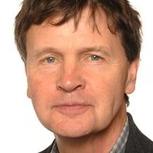Some of the most exciting science emerges from Cambridge's inter-disciplinary approach - the bringing together of specialists to cross-fertilise ideas. This is particularly true in neuroscience which draws on a wide range of disciplines - from anthropology through to zoology. In 2007 more than 500 Cambridge researchers from 30 different departments and centres formed Cambridge Neuroscience, a forum set up to unravel the complexities of the brain. Long-term benefits to society of the Cambridge Neuroscience initiative include the translation of research findings from basic science to enhanced clinical care, and thus better health and quality of life for millions of people.

